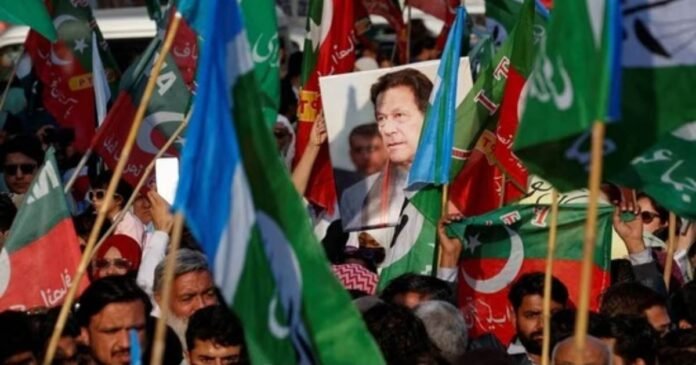In Pakistan’s recent general election, independent candidates supported by the PTI party led by imprisoned former PM Imran Khan have emerged as frontrunners in 101 National Assembly seats. A thorough analysis reveals that 93 of these seats were secured by PTI-backed independents, placing them ahead of the PMLN led by ex-PM Nawaz Sharif, who won 75 seats. With the formation of the next government still uncertain, independent candidates who fell short at the polls have inundated courts with allegations of vote rigging.
Both the PTI and the PMLN express their intentions to form the next government. This outcome surprised many observers who anticipated a victory for Sharif’s party, given its perceived support from the powerful military, particularly after Khan’s imprisonment on various charges and PTI’s exclusion from the ballot. To govern, a candidate must demonstrate leadership of a coalition with a simple majority of 169 seats in the National Assembly.
The PMLN has initiated formal discussions with the PPP led by Bilawal Bhutto Zardari regarding government formation. In a statement, the PMLN announced cooperation with the PPP to achieve political stability, noting their past alliance to remove Imran Khan from power. Additionally, the MQM party, based in Karachi, has made a significant comeback, securing 17 seats, potentially influencing coalition dynamics.
Out of the National Assembly’s 366 seats, 266 are determined by direct voting, while 70 are reserved for women and non-Muslims, allocated based on each party’s strength in the assembly. Independent candidates are ineligible for reserved seats. Several parties, including the PTI, have alleged election rigging and called for protests against the results.
Police presence has intensified, with streets near the electoral commission building in Rawalpindi blocked to prevent protests. Despite police efforts, demonstrators gathered, prompting authorities to disperse them using tear gas. The imposition of section 144, prohibiting gatherings of more than four people, further restricts civilian assembly.
The PTI chairman has advocated for peaceful protests outside electoral commission offices to address concerns of “forged” results. Media reports indicate PTI’s claim of falsified results for at least 18 National Assembly seats. Sharif has appealed to other parties to support the formation of a unity government.
Experts warn of potential political instability as negotiations unfold among Khan’s rivals. Dr. Farzana Shaikh from Chatham House predicts challenges for Khan-linked independents in forming a government, raising concerns about a fragile coalition between Sharif and the PPP. Legal challenges have been filed by six unsuccessful PTI-backed candidates, alleging electoral irregularities, including Yasmin Rashid, who contested against Sharif in Lahore. Pakistani officials deny any wrongdoing, and the PMLN forms a legal team to address rigging allegations.
